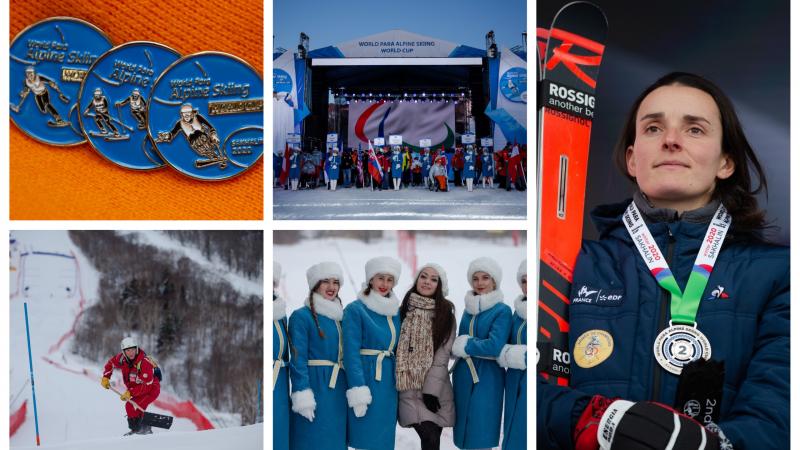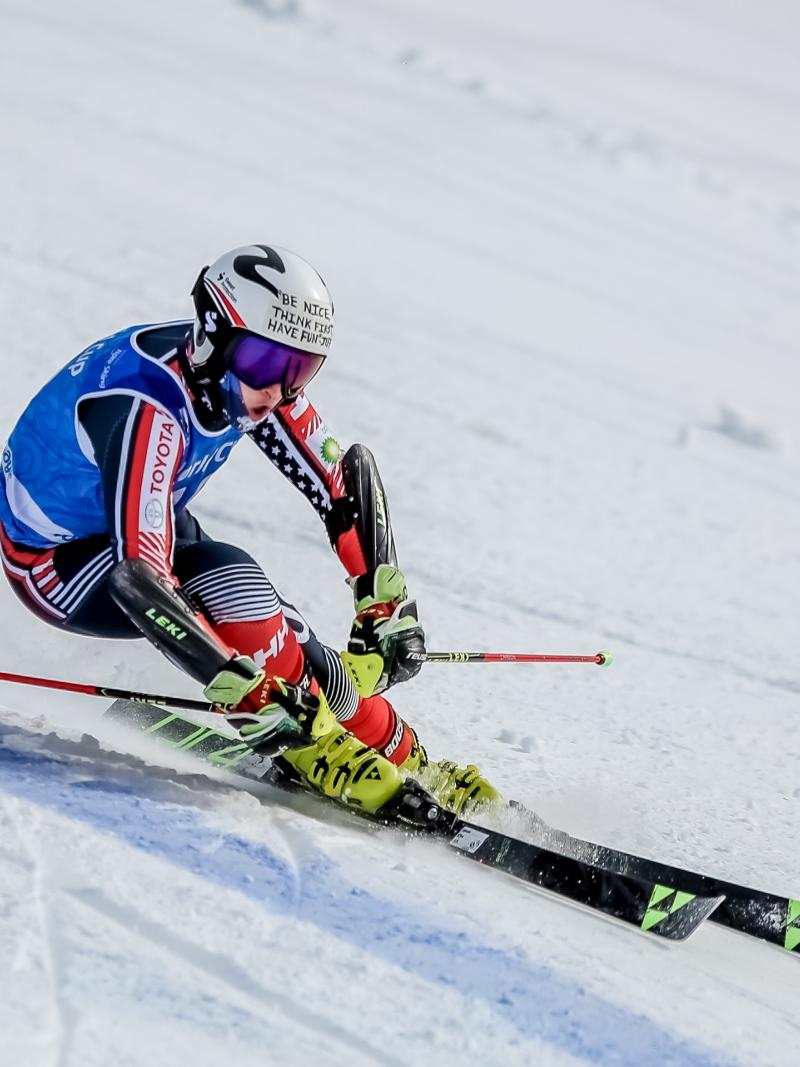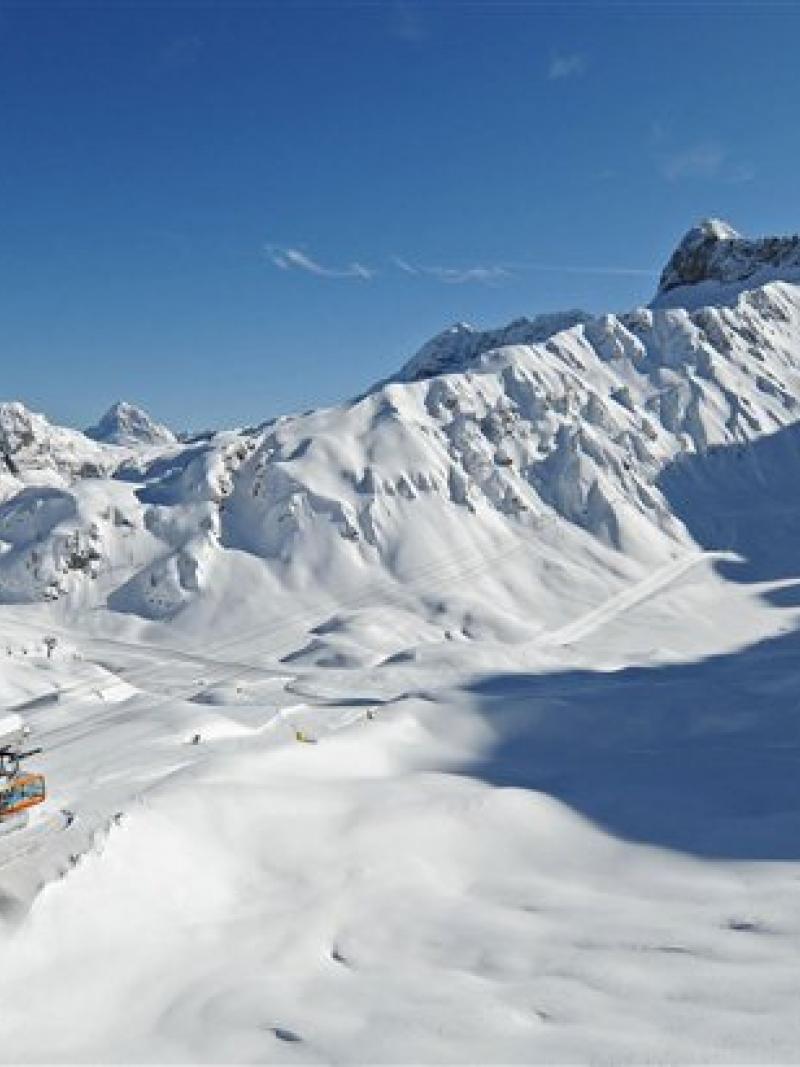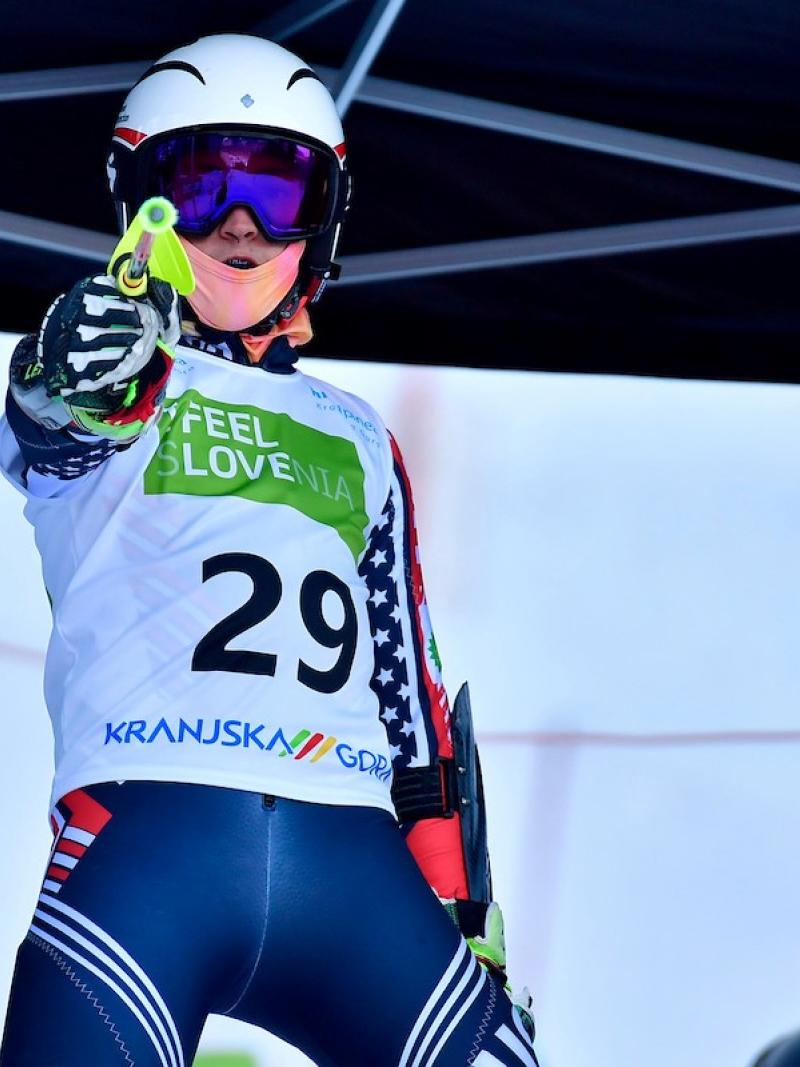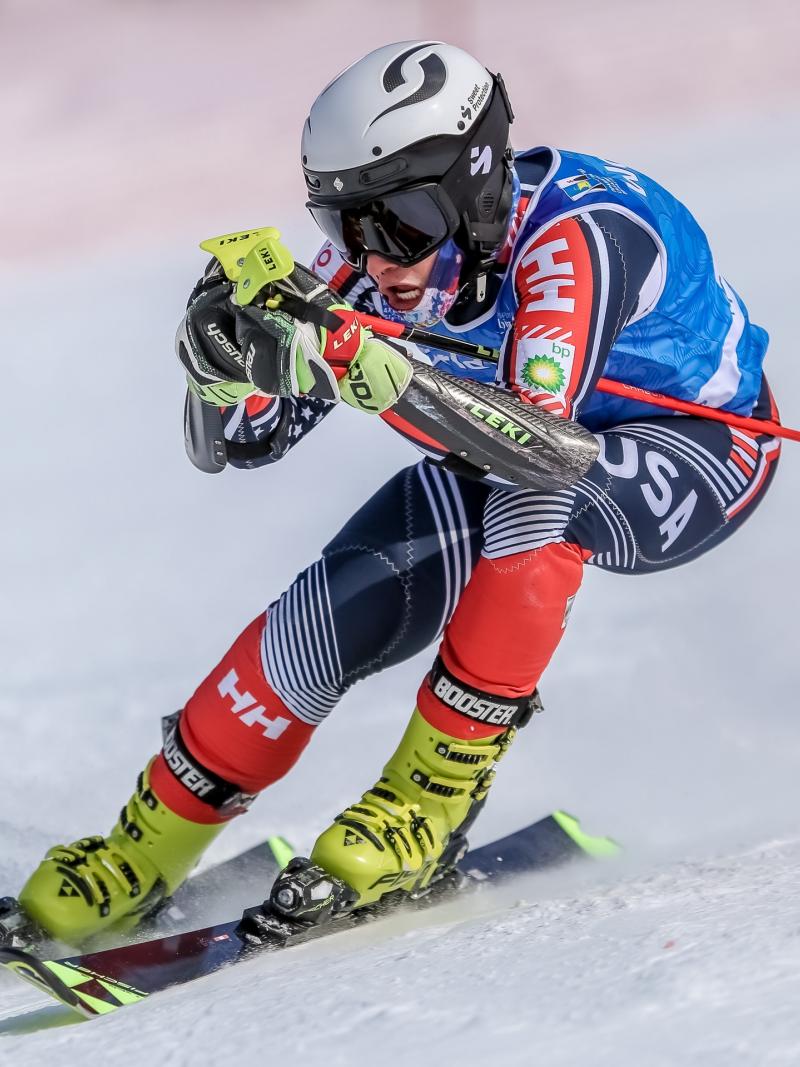Sakhalin World Cup: 'We are as shocked as the rest'
World Cup in Russia’s Far East sets a high standard to follow 28 Feb 2020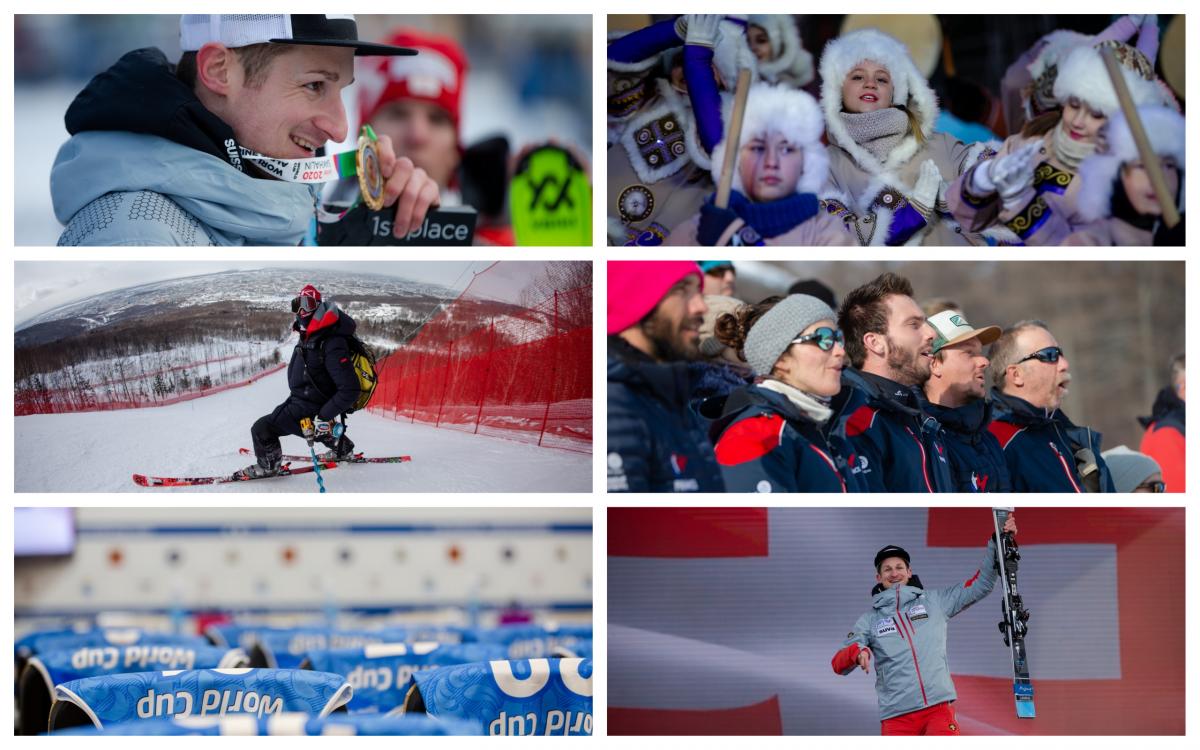
Most of the ski racers who came to Sakhalin for the fourth stage of the 2019-20 season’s World Para Alpine Skiing World Cup had never heard of the place before.
Google Maps came to the rescue as athletes pressed the zoom out button - again and again - to trace the trajectory from their homes to the remote island region in Russia’s Far East - 10 time zones away from mainland Europe and five zones from North America’s west coast.
Crucial speed races and ranking points would make the costly trip, bitter cold and language struggles worth it. But soon Sakhalin became a lot more than racing for points. It was a spectacle - and set a new, high standard for the World Cups to come.
“The organisation, it’s just amazing, like a little Paralympic Games,” said eight-time Paralympic champion skier from France, Marie Bochet. “We need to have more events like that in Paralympic sports for the athletes because we give a lot of our life to skiing and it’s nice that when you arrive here, there are organisers who trust in you and give you a big event and offer you these possibilities to feel like you are at the World Cup.”
Setting the bar
The World Cup, which took place in Juzhno-Sakhalinsk from 9-21 February and consisted of three downhill, two super-G and three technical races, delivered all the glitz of a major sporting event.
“All the coaches and the teams are impressed with how they organised this event. You have the feeling that you are at the world championships or at the Paralympic Games and this is very unique. We never had this before,” said Austria’s head coach Markus Gutenbrunner. “They have never seen it before that someone has organized a World Cup like this.”
By the time the athletes arrived in Sakhalin, the region’s capital city with a population of 200,000 was decked out in large posters announcing the upcoming competition. Official buses that took the skiers from the hotel to the slopes were also branded with World Cup logos.
Opening and Closing Ceremonies, each involving around 300 performers, bookmarked the World Cup on both ends.
Volunteers helped the ski teams starting with Moscow’s airport, where 10 volunteers were on duty, with another 91 volunteers on hand in Sakhalin itself. Some volunteers were assigned to one of the 10 national delegations, while others helped in various roles on site.
An average of 30 people serviced the race course each day as they fought with the fickle island weather to keep the races on track. Ultimately, no races were cancelled or postponed except for one official downhill training, which was held the following day.
Live broadcasts of all the races where available online and on several Russian TV channels with commentary in English and Russian. Moreover, there were official photographers, videographers and reporters working on the slopes, with all the media content appearing on the website and social media accounts set up just for this competition.
When the races finished - all shown on two large screens at the Gorny Vozdukh ski resort - the athletes received their medals on stage in front of full stands.
“We are as shocked as the rest. This World Cup stage will be the most memorable for all of us,” said Russia’s Varvara Voronchikhina. “All these Opening and Closing Ceremonies, the official awards ceremony with anthems and flags - all this was very different. We would like to see the same everywhere because it adds motivation.”
Italy’s head coach Davide Gross, who tried to create a similar atmosphere with a stage and live feed at January’s World Cup in Prato Nevoso, Italy, was also left impressed with Sakhalin’s hosting efforts.
“They finally made us feel important and that’s the coolest thing,” he said. “The athletes really need someone to watch them and we in Prato Nevoso started with the school [kids] and it’s something but it’s not sufficient to make the athletes feel like real athletes.
“We made one little step in Prato Nevoso, three steps more here and the direction is a good one.”
From Russia, and beyond
This was the first time that Sakhalin hosted the World Para Alpine Skiing World Cup, and only the second time the event was held in Russia. Sochi previously hosted the competition as a test event for the 2014 Paralympic Winter Games.
While the Sakhalin races carried important ranking points, the number of athletes who made it to the starting gates was smaller than usual due to high flight costs, among other factors.
Nikita Bulanenko, the manager responsible for the condition of the race course at Gorny Vozdukh ski resort, is optimistic that more Para alpine skiers will come to future competitions in Sakhalin after hearing of this year’s World Cup organisation.
“Everybody has their own assumptions about Russia - bears, vodka, all of that - and when people came here, they got to see everything for themselves,” Bulanenko said. “It was our pleasure to make an effort for them. I know that the best advertising is word-of-mouth. The teams that came here will speak about Sakhalin and I am confident that next year there will be even more teams.”
Bulanenko’s predictions seem to be coming true already as those athletes who were initially sceptical are giving the World Cup rave reviews.
“Sakhalin - I have never been here before. At first I was a little bit hesitant, but it was very good,” said Switzerland’s Thomas Pfyl. “It’s one of the best organised World Cups this season.”
The positive reviews, in turn, have extended a challenge to future World Cup hosts to deliver some of that sparkle on their own slopes.
“If we want to have more supporters, we need to be more professional in the organisation of this event, and Sakhalin did their best for that and it’s really appreciated by athletes,” Bochet said.
Russia’s Paralympic champion Aleksei Bugaev agreed: “I’ve been travelling to World Cups for eight years and the organisation here compares only to the Paralympic Games. Even world championships in many countries were not held at this level so I think we need to take this as an example for the future.”





